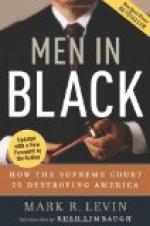No example could be found in the thousand volumes of law reports where the judge changes his mind on account of an exception. The object in this particular direction is vain.
With regard to appeal; the Appellate Court that attempts to decide a case on the exceptions taken at the trial would have a difficult time. They would have to disentangle the mesh of evidence and find out whether that important piece of testimony on page 204 was excepted to or not, then whether there was a proper ruling; refer to the stenographer’s minutes and look at the important exception on page 59 and again on page 106. Unless the question decided was excepted to, the Appellate Court can not decide it. It is hard to imagine that any court could be so rigorous and narrow-minded that they could hang justice on such little pegs of exceptions, which the stenographer in the hurry of the moment may have forgotten to insert.
In the criminal courts there are no exceptions on the part of the people, because there are no appeals on behalf of the State. The defendant continues to repeat “I respectfully except.” “I must insist on my exception.” Think of a man being jailed for seventeen years because his case was not reversed on account of the failure to except. The court could not believe Justice to be so blind-folded that she can not understand the evidence as a whole.
Exceptions are the tacks and pin pricks of a trial. They are of so little value in the main structure of the drama that if they are forgotten by either side, the court should provide them with a bushel basketful which could be distributed by the handful wherever the lawyers thought they would be useful or pleasant.
Objections are of three main kinds: irrelevant, immaterial, and incompetent. They are like the magic words that open or unlock the doors of evidence and let it in or keep it out. They have three distinct meanings which lawyers understand. A thing may be immaterial, but not incompetent, or incompetent and not immaterial, or irrelevant and not immaterial, or irrelevant and not incompetent, or incompetent and not irrelevant, or one or both or not at all. Any student of law can fully explain the difference, but the distinction is immaterial and irrelevant, and if the reader is in doubt let him ask any lawyer friend to tell him in plain words, without insulting his common sense, what the distinction between immaterial and irrelevant is.
The confusion of one young man found expression finally in the terms “irreverent, impertinent, and—and—and—no—matter.”
The lawyer, when he objects, usually attempts a few other suggestions which may be considered by the judge, such as “the question is leading and suggestive; grossly improper; calling for a conclusion; objected to as argumentative or because of its ambiguity.”
Whatever the trouble with objections may be, it is neither the fault of the lawyer, the judge, nor the witness. When certain evidence is not allowed by law it is proper that it be objected to. Unreasonable and often comical as objections sound, the basis of their existence in law is that the court wants the best possible proof.




